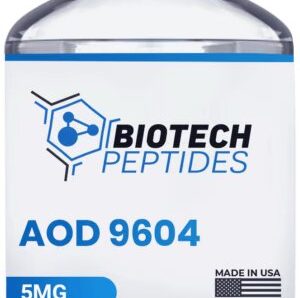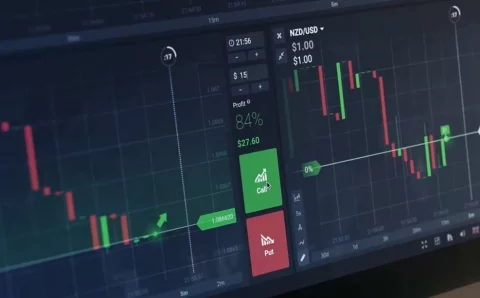[ad_1]
Healthcare facilities in California have taken charge to vaccinate the overwhelming majority of their employees against COVID-19 in accordance with the state’s mandate, using educational campaigns, culturally competent conversations and resources to reach out to unvaccinated workers.
Major systems like Oakland-based Kaiser Permanente, Los Angeles-based Cedars-Sinai and the University of California, Los Angeles Health are close to being fully in compliance, reporting employee vaccination rates above 90% as for Friday, the deadline for the state mandate.
Yet health systems are still dealing with small percentages of holdouts and sorting through applications to determine who will receive a medical or religious exemption. Some hospitals, especially in rural areas, are faring more poorly.
At San Diego’s Sharp HealthCare, 92% of workers had gotten at least one dose of a COVID-19 vaccine and 4% received medical or religious exemptions, according to a spokesperson. The health system placed 305 of its 18,000 employees on administrative leave for noncompliance. These workers have 30 days to get vaccinated or they will lose their jobs.
The vaccine mandate staffing crisis that wasn’t
Kaiser Permanente and Stanford Health Care in Palo Alto are also opting to give noncompliant employees an unpaid grace period to become vaccinated. Two percent of Kaiser Permanente’s 216,000 employees are currently on leave and have until Dec. 1 to get inoculated and return to work. University of California, Davis Health in Sacramento is at 100% compliance and Sacramento-based Sutter Health’s 54,000-person workforce is 91% vaccinated, the Sacramento Bee reported. Scripps Health of San Diego had about 140 unvaccinated employees out of 17,000 as of Friday, the Los Angeles times reported.
“We understand that for some this may be a difficult decision in an already difficult time,” Kaiser Permanente Chair and CEO Greg Adams said in a statement. “We are doing all we can to support that decision making process with information and discussion. Importantly, our vaccination mandate is motivating members of our workforce to get educated, to get vaccinated and do their part to help end this pandemic.”
At Los Angeles-based Cedars-Sinai, 98% of 16,000 employees are vaccinated. The health system is still sorting through who among the remaining 2% will be granted religious or medical exemptions, and who will be deemed noncompliant.
Religious exemptions are still under review at UCLA Health as well, where more than 90% of the system’s 29,000 employees are vaccinated and 3% have requested exemptions. UCLA Health is in the process of notifying employees that they are not in compliance, and is considering disciplinary actions such as prohibiting access to work sites.
California to have 1st COVID vaccine mandate for schoolchildren
How hospitals monitor and accept requests for religious exemption may become a cause for disparity between facilities in the near future, said Rick Kes, healthcare partner at RSM.
“Some organizations are taking a bit of a broad approach, where basically anybody who asks for a religious exemption can get one, and then others are saying, ‘We’re going to figure out what the religious exemption is, and if it’s based on misinformation, then we’re not going to accept that request,'” Kes said.
UC Davis Health, for example, granted almost every request for religious exemptions, CEO David Lubarsky told the Los Angeles Times.
The California Department of Public Health maintains that the mandate will be enforced and facilities out of compliance will be cited, although hospitals, doctor’s offices and other healthcare settings are not required to disclose their vaccination rates to the state or to federal authorities.
Each facility is in charge of determining which employees are unvaccinated, who will receive exemptions and what the consequence will be for unvaccinated workers who don’t qualify for exemptions. Healthcare providers can also decide whether to share their vaccination data with regulators.
A facility will only be investigated for noncompliance if another party brings a complaint against it, according to the state public health department.
Not a Modern Healthcare subscriber? Sign up today for just $1.
Healthcare employers have strong incentives to promote vaccinated workforces and many across the country have been aggressive about executing their mandates, Kes said.
In the months leading up to the California mandate deadline, union leaders worked closely with healthcare employers like Cedars-Sinai to individually connect with workers who were reluctant to get the vaccine, foster conversation with culturally competent doctors and provide factual information, said Renée Saldaña, press secretary for Service Employees International Union-United Healthcare Workers West.
Most of the outreach has been to worker populations lower in the hospital hierarchy with poorer take-up of the vaccine, including janitorial staff, food service employees and transporters, Saldaña said.
Vaccination rates have also lagged in rural areas where some hospitals have granted religious exemptions to nearly one-third of their staff members and others have a workforce with 18% of employees unvaccinated, as the Los Angeles Times reported.
While California was the first state to mandate healthcare worker vaccination, Connecticut, Maine, New York, Oregon, Rhode Island and the District of Columbia also have vaccine mandate orders for healthcare employees.
The Rhode Island Department of Health is requiring licensed healthcare facilities to submit information about their healthcare worker vaccination rates, a spokesperson said. Of facilities that have already reported, 94% of their combined workforce is vaccinated or medically exempt.
After numerous vaccination clinics, educational seminars, town halls and other meetings, Providence-based Care New England’s healthcare workforce in Rhode Island is 100% compliant with the state mandate, President and CEO James Fanale said in a statement.
“Healthcare workers who were not vaccinated before today are not being allowed to work at any Care New England hospital, in order to preserve our commitment to world class care for our patients, and to protect staff,” Fanale said. “Contingency plans are currently in place to accommodate any temporary staffing shortages.“
As of the Oct. 1 deadline in Rhode Island, however, four hospitals owned by Providence-based Lifespan Health System and three other hospitals were among 92 healthcare employers who asked the state for a 30-day extension because they weren’t in compliance, the Boston Globe reported. Lifespan placed unvaccinated employees on unpaid leave and will fire them if they aren’t following the policy by Oct. 18, according to the newspaper.
In addition to state mandates, internal organization policies requiring vaccinations have helped turn the tide, said Felipe Osorno, executive administrator of continuum of care and value improvement at Keck Medicine of University of Southern California. Two out of 7,500 USC health system employees lost their jobs for not following the rule, according to the Los Angeles Times.
Before California Gov. Gavin Newsom (D) announced the statewide mandate, Keck Medicine was already drafting its vaccination policy and planning timelines. The system then worked to track all noncompliant employees and drive up its vaccination rate, Osorno said.
Similarly, Kaiser Permanente increased its employee vaccination rate from 78% to 92% after announcing its own vaccination requirement on Aug. 2.
“It definitely shows that the mandates have an effect in helping convince some folks across the finish line,” Osorno said. “I know these mandates will become pretty commonplace among large employers and all healthcare institutions, and I think it’ll help us keep people protected.”
[ad_2]
Source link





